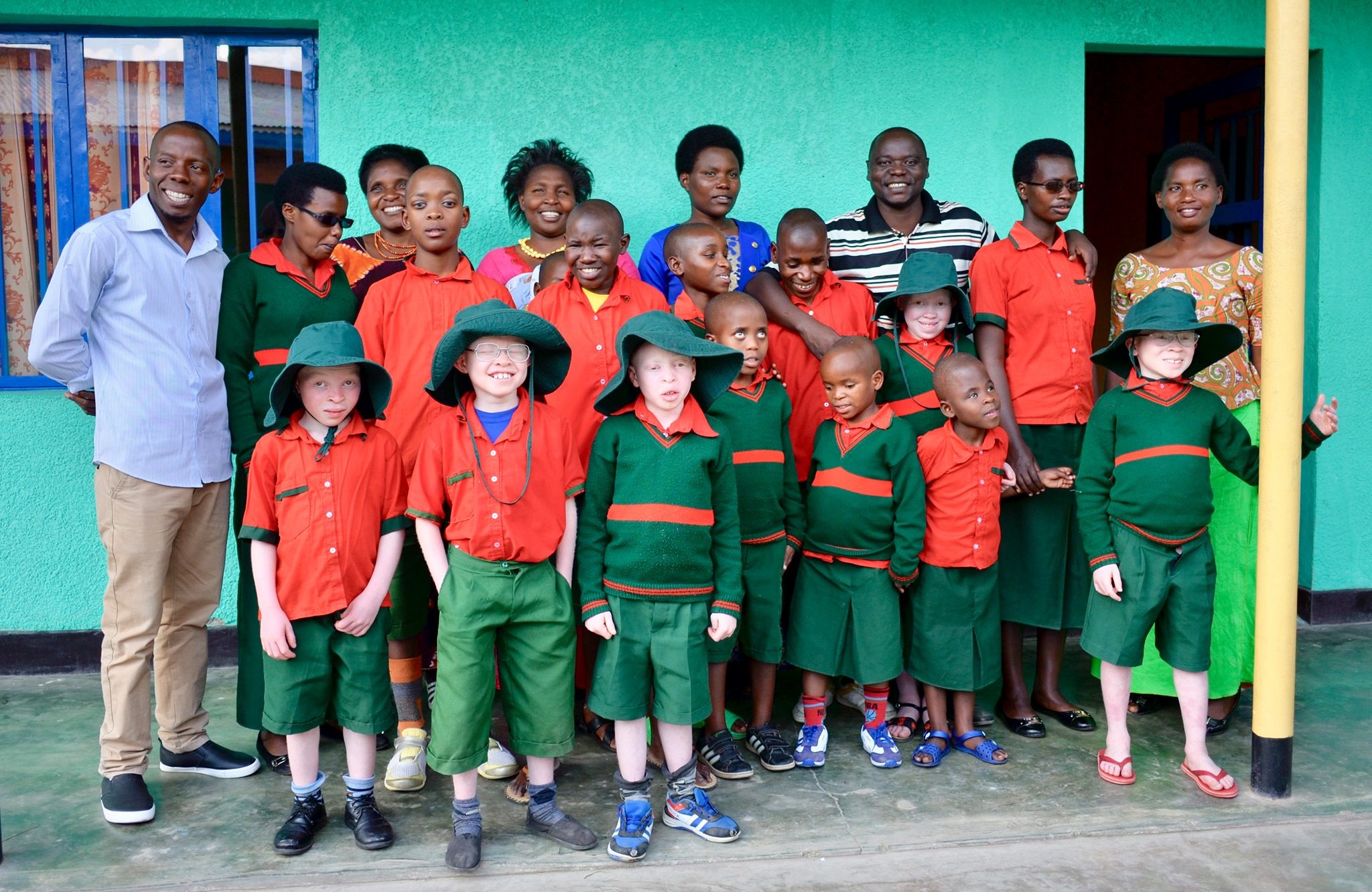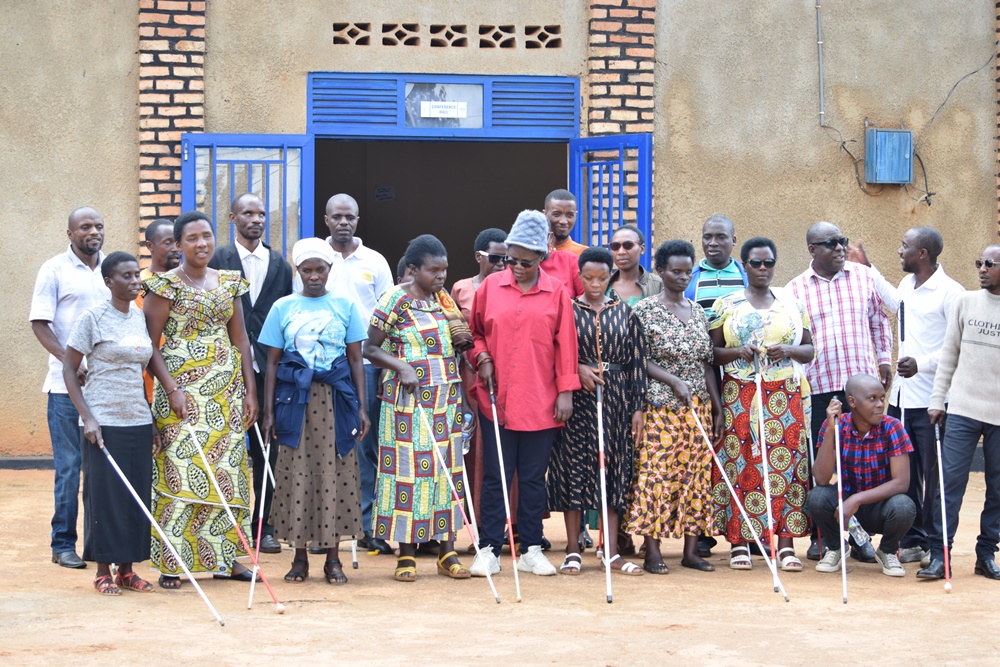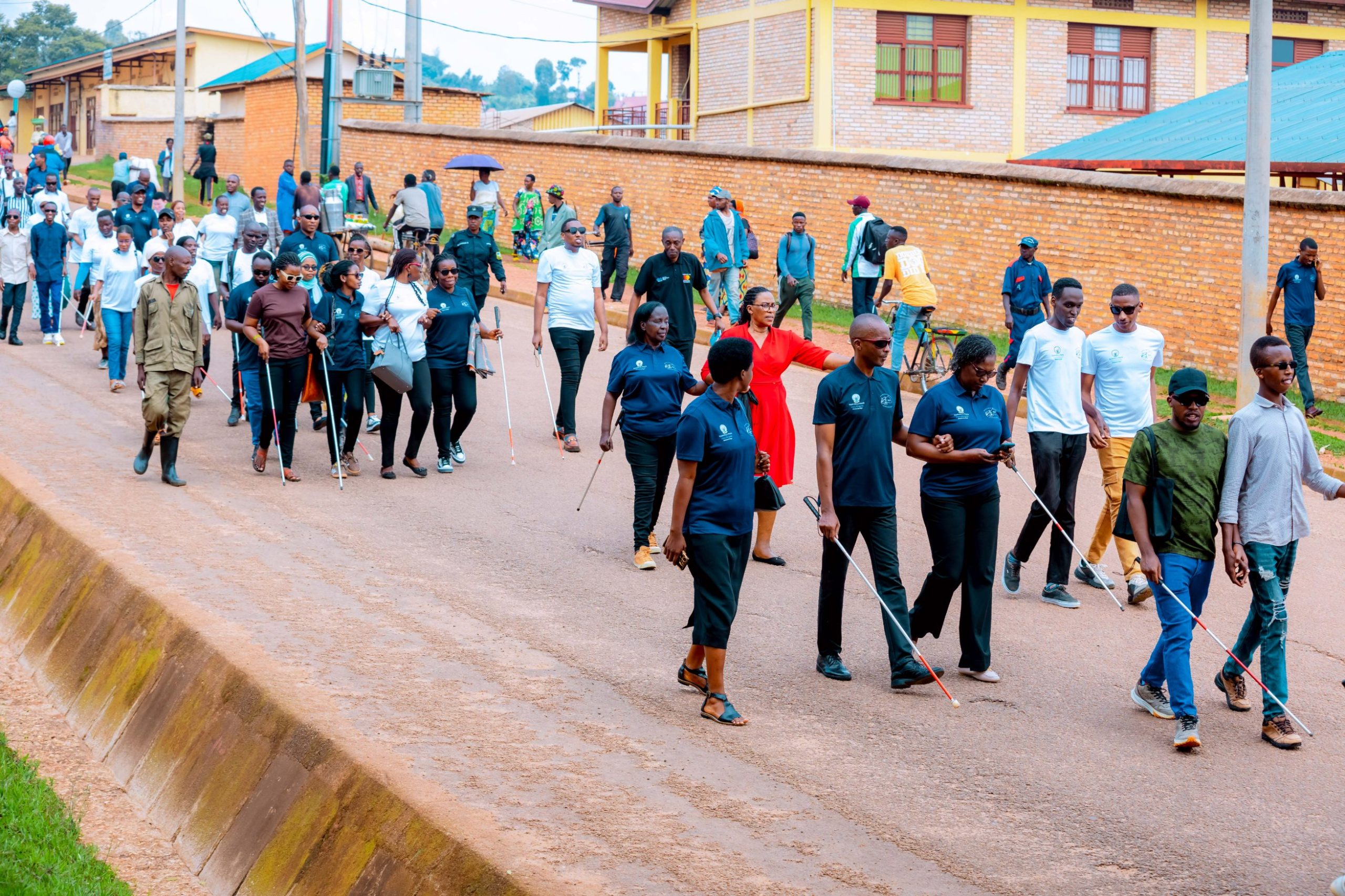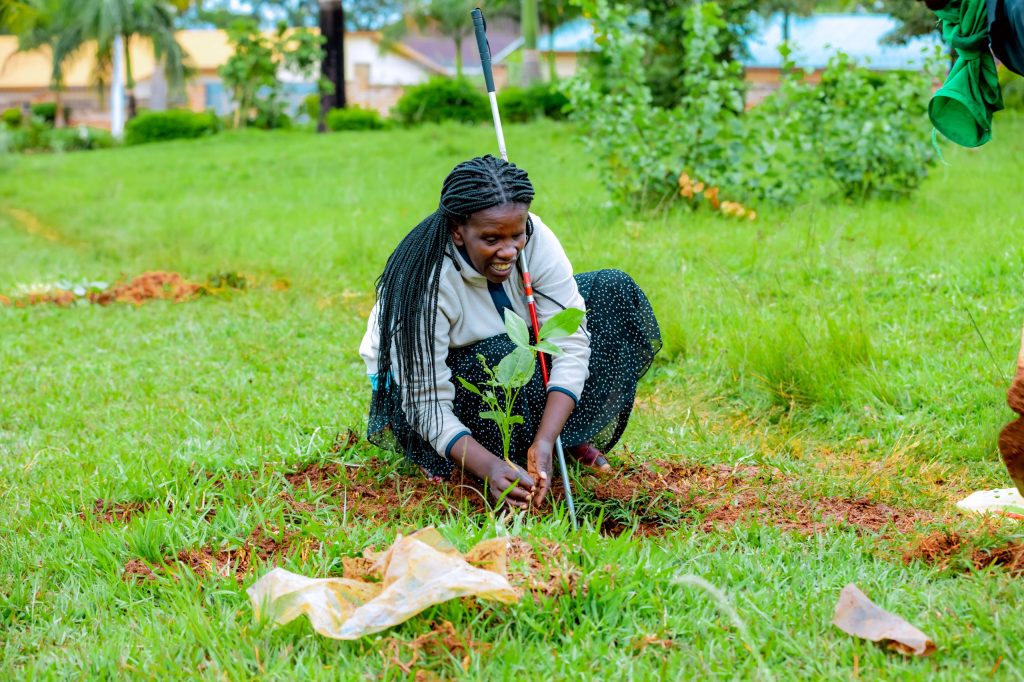The Executive Director of the Rwanda Union of the Blind…
RUB highlights barriers affecting the education for Persons with Visual Impairment
The Rwanda Union of the Blind (RUB) is concerned about the persisting challenges that are hampering the Inclusive Learning for children with Visual Impairments.
The Challenges were discussed on December 17, 2021 during an event that was organized by the Rwanda Union of the Blind to show stakeholders the barriers that are hindering the education for children with visual impairments.
It has been highlighted that children with visual impairments have limited access to resources such as teaching materials and lack of enough qualified teachers that are able to provide the special education to Children with Visual impairments.
Some teachers in educational institutions for children with disabilities in the say that there are many children who are now showing that they are capable and successful in their studies, only that in their education program there are still obstacles, related to the lack of resources and qualified teachers whose number is still low due to the fact that teaching these children requires special training as also their education must be also unique.
This was also echoed by the Ministry of Education, which said that there is a plan to address the issue of education for children with disabilities by setting up special schools and training teachers.
Among teachers of children with disabilities, they even revealed that among the children with disabilities there are more who succeed better than those children without disabilities.
They also point out that there are obstacles in both the materials and the curriculum as explained by Niyitegeka Pascasie, principal of the G.S Rukingu, a nine-year BASIC Education school located in the Northern Province of Rwanda in Rulindo District, Rusiga Sector.
“The challenges we face in schools, that we want the government to help us with, include lack of special teaching materials and lack of enough qualified teachers who are able to provide this special education to the learners,” said Mrs Niyitegeka.
The scarcity of education materials is also underlined by the Rwanda Union of the Blind (RUB), as confirmed by Dr. Donatile Kanimba, RUB Executive Director.
The scarcity of education materials is also underlined by the Rwanda Union of the Blind (RUB), as confirmed by Dr. Donatile Kanimba, RUB Executive Director.
“The challenges are still there because of the inadequacy of educational resources and inadequate qualified teachers, which is still affecting the visually impaired learners. Children with visual impairments are still studying in non-disabled institutions where they are being taught as well as those with no disabilities yet they should be given special attention,” she said.
Dr. Kanimba argues that the problem of equipment and access to specialist teachers in educating people with visual impairments and all other disabilities must be addressed so that they too can be provided with quality education.
Dr Nelson Mbarushimana, Director General – Rwanda Basic Education Board (REB) says that some progress has been made in the field of sustainable education where REB has established the Department that is in charge of promoting Inclusive Education for all learners with disabilities.
He added that efforts are being made by the country to increase the number of qualified teachers and learning materials for children with disabilities.
“Children with disabilities also have the right to education because they are capable. As the Rwanda Basic Education Board (REB) we have a department that is in charge of the education for people with disabilities. We continue also to strive for the increase of qualified teachers and train them so that they can keep being in a position to use resources for children with disabilities and this is in line with the continuous progress to provide quality education to learners with disabilities, “he said.
Although children with visual impairments have difficulty in their education, RUB is proud of the achievements made so far, such as the fact that children with visual impairments are learning and sit for state exams every year which is something commendable when you compare the situation in the past.
It is clear that the problems they face, as mentioned above, once resolved would be another step forward and especially motivating for the education of people with disabilities in Rwanda.







It’s good plan
Thank you for you comment